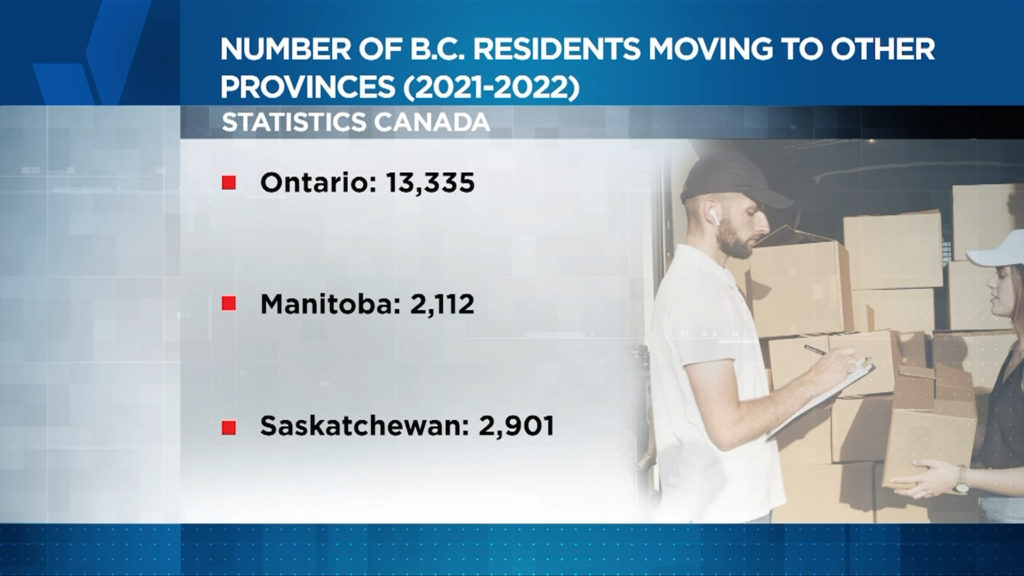
More than 55,000 people moved out of B.C. to other provinces between 2021 and 2022, with affordability being a driving factor for many.
Data from Statistics Canada shows that nearly 55,000 people moved out of the province in 2021, with more than half of them moving to Alberta. The next highest number of migrants from B.C. was in Ontario at 13,000.

Many residents who left B.C. were faced with a tough decision. Samantha Linton, who was born in raised in Langford, moved out of the province in early 2022 after being evicted.
“We were paying $1,800 a month and we got in really cheap. Unfortunately, it was right before COVID and then everything skyrocketed after that,” said Linton.
Her husband and three children moved to Manitoba and now says she averages at least $2,000 a month in savings.
“Right now for our three-bedroom full house, with a decent property, a separate garage, we have everything, we pay $1,300 a month,” said Linton.
The decision was due to affordability and says she would go back to Langford if she had an opportunity.
“As a parent, you have to do what you can for your kids,” said Linton.
A senior-level worker within the B.C. government, says affordability is driving away good candidates. CHEK News has agreed to protect the identity of the person.
“We are so dedicated to try, for other reasons, to try and [have us work from] home, but the home situation for so many of us people in the BC public service is not really desirable,” said the employee.
The employee says that at least two people have quit their jobs due to the cost of living, and retaining new employees from other provinces is hard once they begin working.
“They do it for a little while and very early on start having a conversation with me as their manager saying ‘I love the job, I think it’s great, but I can’t afford this,'” said the employee.
Even though a recent Canada Mortgage and Housing Corporation (CHMC) report showed a rising vacancy rate in 2022, and initiatives like the Missing Middle have been passed, advocates say there is a deeper problem.
“There’s just a housing shortage and I think you have to take into account that the market is not going to create really cheap, low, affordable homes that are affordable to people with low incomes, that has to be non-profit homes, government housing, social housing,” said Leo Spalteholz, Housing Analyst with Homes for Living.
Spalteholz adds that these housing projects come with years of delays and sometimes cities cut back on the project entirely.




